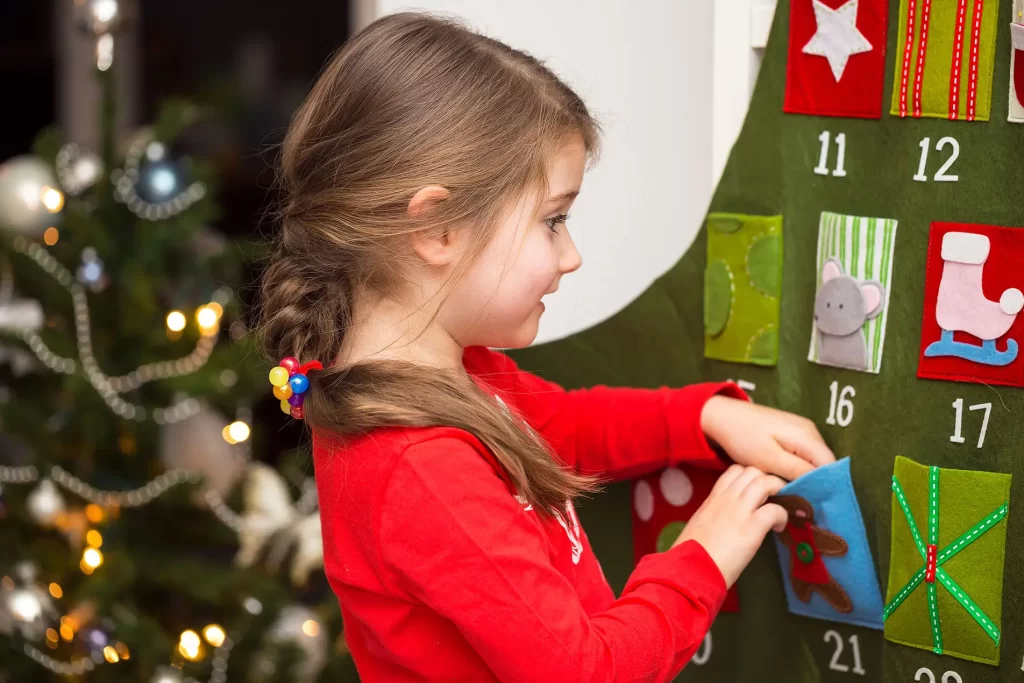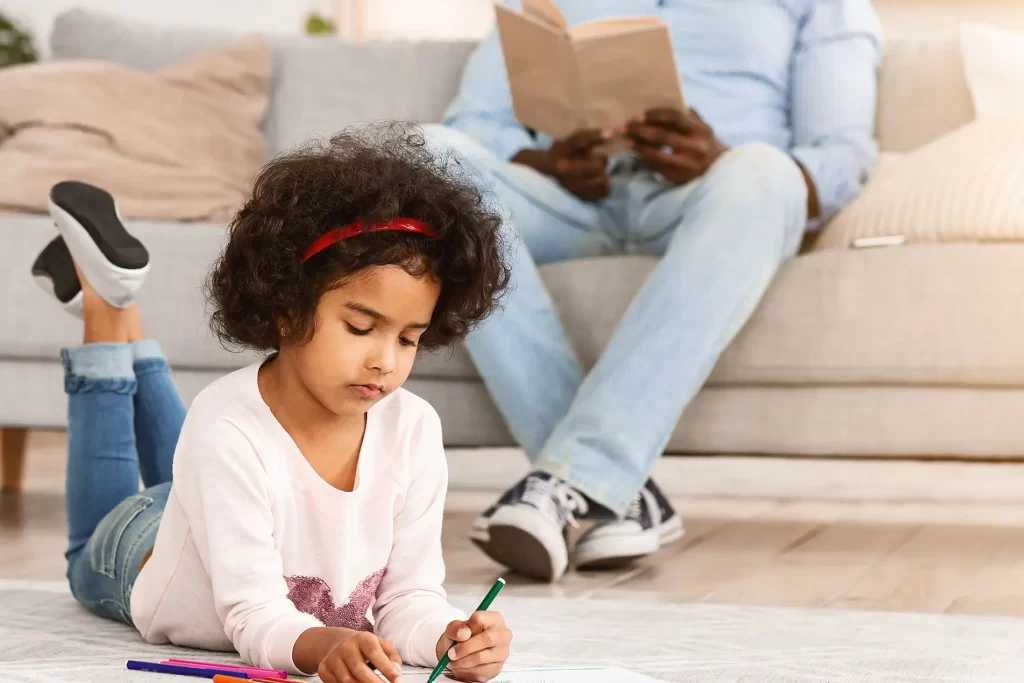The holiday season is often a time of joy, celebration, and togetherness. However, it can also bring a fair amount of stress—especially for parents trying to juggle family obligations, gift shopping, and the constant hustle and bustle. The pressure to create the “perfect” holiday experience can sometimes feel overwhelming. Adding to that is the challenge of managing your child’s emotions and behaviors, which can sometimes become more intense during this busy time.
If you’re looking for ways to manage both your stress and your child’s during the holidays, here are some practical tips and tricks to help navigate this festive season with more ease and joy.
Stick to Routines (as Much as Possible)
Holidays can disrupt regular routines, but kids—especially younger ones—thrive on structure. Whether it’s mealtime, nap time, or bedtime, try to keep things consistent to avoid meltdowns. Of course, there will be exceptions, but keeping some form of routine helps your child feel secure and reduces anxiety.

Tip: Use a visual schedule if your child is old enough to understand it. This can be a simple chart of the day’s activities or a list of things to look forward to (e.g., breakfast, a family outing, bedtime).
Set Realistic Expectations
Holidays are full of excitement, but they can also come with a lot of sensory overloads—crowded malls, loud music, bright lights, and family gatherings. Help your child manage these new experiences by setting realistic expectations. Talk about what’s coming up, whether it’s a visit to see relatives, attending a holiday event, or seeing Santa. Managing their expectations can help reduce disappointments or meltdowns.
Tip: Prepare your child by explaining what’s going to happen in a simple way. “We’re going to Grandma’s house, and there will be lots of people, but we will leave when we feel tired or overwhelmed.”
Teach the Gift of Patience
While it’s easy for adults to get caught up in the excitement of gift giving, children often have a harder time waiting for their presents. Teach your child that there’s fun in anticipation! Instead of giving everything at once, spread out the gift-giving and incorporate patience-building activities, like playing a game or watching a favorite holiday movie together while waiting.

Tip: Use a countdown calendar (like an Advent calendar) to help kids manage the wait. This can also help them feel more in control and involved in the process.
Give Your Child Opportunities for Quiet Time
Holidays can be busy, and it’s easy for kids to feel overstimulated with all the noise and activity. Incorporate moments of calm during the day where your child can relax away from the hustle and bustle. A quiet space with their favorite book or toy can provide a much-needed break for both you and your child.

Tip: Create a designated “quiet space” at home or during family gatherings. Keep soft blankets, headphones for relaxing music, or a favorite stuffed animal available to help your child unwind.
Practice Self-Care to Manage Your Own Stress
Children pick up on the stress and emotions of the adults around them, so it’s important to take care of yourself to model healthy emotional regulation. Take time for your own self-care, whether it’s a quiet cup of tea, a brisk walk, or just a few minutes of deep breathing. If you’re feeling calm and centered, it will be easier to handle challenging situations with your child.
Tip: Set aside a few minutes each day to decompress, even if it means asking your partner or a family member to step in and help with your child. You deserve it!
Maintain Healthy Holiday Traditions
While it’s fun to try new things during the holidays, maintaining familiar traditions can bring a sense of stability and comfort to your child. Whether it’s baking cookies together, reading holiday books, or watching classic holiday films, these traditions create a sense of continuity and joy.

Tip: Include your child in the planning process. Let them help pick out the holiday movie or choose the cookie recipe, allowing them to feel part of the tradition-making process.
Prepare for Emotional Ups and Downs
Holidays can stir up a variety of emotions in children—excitement, frustration, disappointment, and even anxiety. Be prepared for emotional outbursts, especially if things don’t go as planned or if your child is feeling overwhelmed. Validate their feelings and offer comfort by letting them know it’s okay to feel upset and help them find ways to calm down.
Tip: Offer emotional check-ins. Ask your child how they’re feeling and encourage them to express their emotions. You could say, “It looks like you’re feeling frustrated. Do you want a hug or need a break?”
Set Boundaries and Stick to Them
Holidays often come with extra sweets, late nights, and indulgences. While it’s a time to celebrate, it’s important to set clear boundaries to ensure your child doesn’t get overindulged or overstimulated. Whether it’s limiting screen time, making sure they don’t eat too many sugary treats, or setting bedtime limits, keeping boundaries in place will help avoid tantrums and meltdowns.
Tip: Offer healthier alternatives to sugary treats or keep a visual chart of what’s allowed and when. For example, “We can have one treat after lunch, and then we’re going to play outside for a bit.”
Keep a Sense of Humor
Holidays often don’t go as planned, and there may be hiccups along the way. Whether it’s a forgotten gift or a last-minute change in plans, maintaining a sense of humor can help you and your child get through challenging moments. If something unexpected happens, laugh it off and remember that the holiday season is about enjoying time together, not achieving perfection.
Tip: When things get chaotic, pause and take a deep breath, then look for the humor in the situation. Laughter can ease tension and remind everyone that it’s okay to let go of perfection.
The holidays can be a beautiful, memorable time for families—but they don’t always come without their stresses. By keeping routines, managing expectations, allowing space for emotional expression, and practicing self-care, you can help both yourself and your child navigate the holiday season with less tension and more joy. Remember, it’s not about making everything perfect, but about making moments of connection, love, and happiness with your family.

